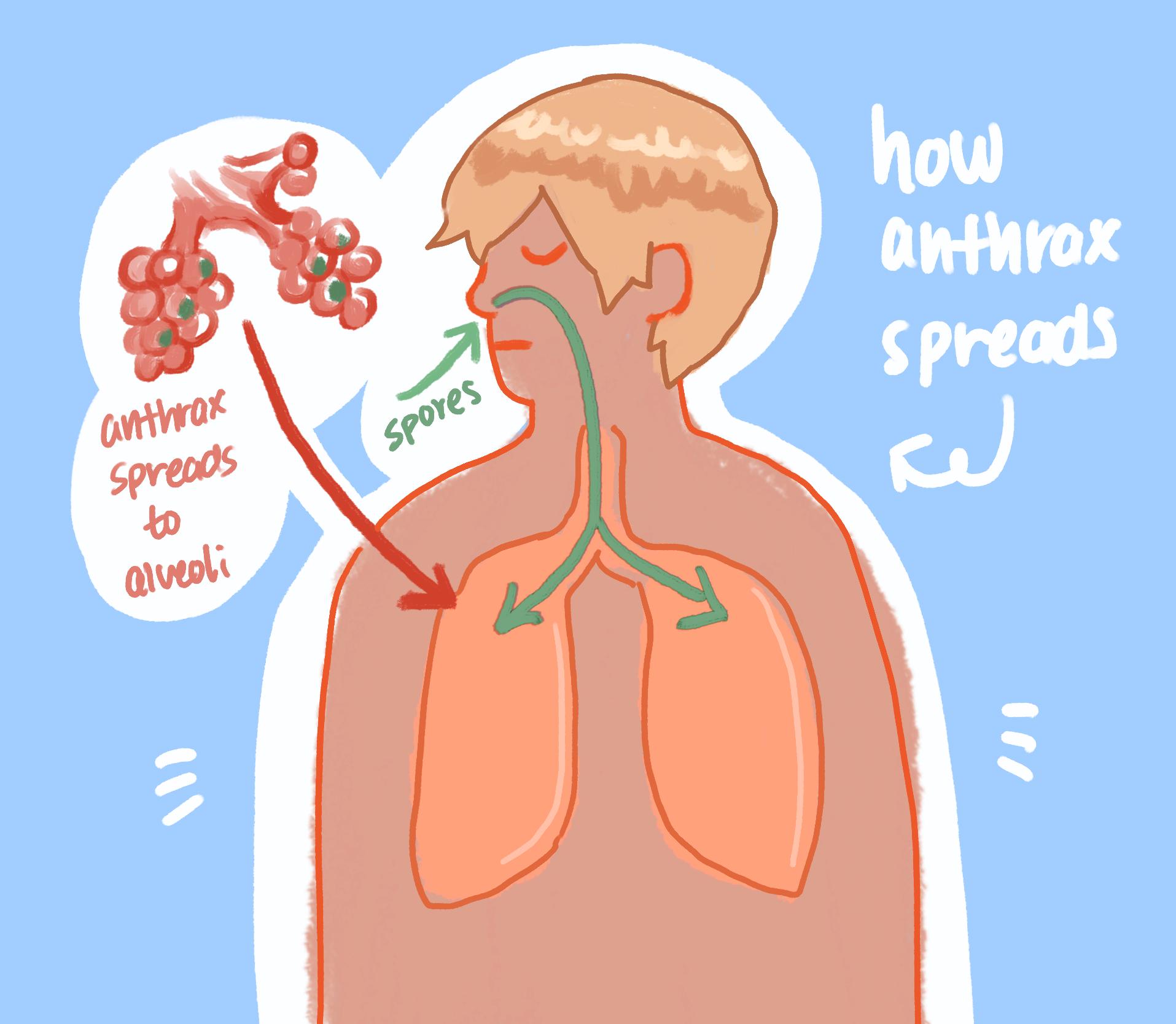
1 minute read
Disease and Healthcare
from Winter 2023 Edition
by scienceholic
Inhalation anthrax consequently starts in the lymph nodes of the lungs, then spreads to the rest of the body causing severe breathing problems and shock. These breathing problems can be fever, chest discomfort, shortness of breath, confusion or dizziness, nausea, vomiting, stomach pains, headaches, extreme tiredness, and body aches Without treatment, inhalation of anthrax is nearly always fatal However, given IV(intravenously) antibiotics (antibiotics injected into the veins) about 55% of patients survive. In addition, there are antitoxin therapies for inhalation anthrax (raxibacumab and obiltoxaximab) that target the toxins caused by the infections. The third type of anthrax, a form rarely reported in the United States, is gastrointestinal anthrax Infections for gastrointestinal anthrax usually develop 17 days after exposure, similar to cutaneous anthrax. This form of anthrax usually develops when a person eats raw or uncooked meat from an animal infected with anthrax. Anthrax spores can affect the upper gastrointestinal tract (throat and spores esophagus), stomach, and intestines The spores in these areas can cause a wide variety of symptoms such as fever, ascites, septicemia, swelling of neck or neck glands, sore throat, painful swallowing, hoarseness, nausea and vomiting, especially bloody vomiting, diarrhea, headaches, flushing, red eyes, stomach pain, fainting, and swelling of the abdomen Without treatment, more than half the patients with this form of anthrax die However, given IV antibiotics, such as penicillin g, ~60% of patients survive. Finally, the last form of anthrax, one that has never been reported in the United States, is injection anthrax. Injection Anthrax has symptoms similar to cutaneous anthrax: fever and chills, a group of small blisters or bumps that may itch, a painless skin sore with a black center that appears after the blisters or bumps, and swelling around the sore and abscesses deep under the skin or in the muscle where the drug was injected. Injection anthrax can spread faster through the body and be harder to recognize or treat.
Advertisement










